A Look Back on the Road to Paris…2016 Rio Paralympic Games
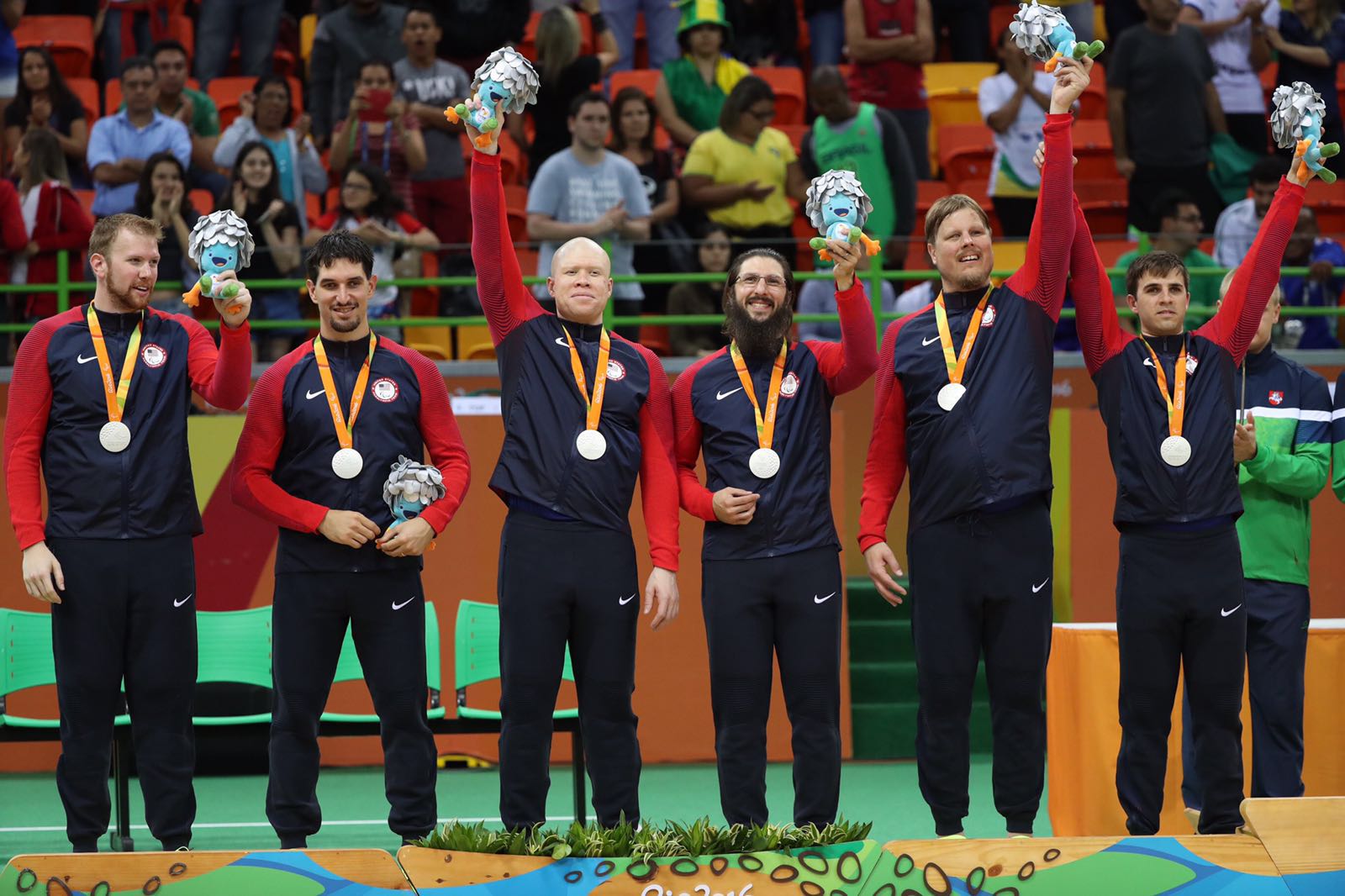
The USA Goalball men’s team captured its fifth Paralympic medal and third silver medal at the Rio 2016 Paralympic Games. Led by head coach Mike Legé, the U.S. squad was comprised of a balanced mix of Paralympic veterans and newcomers in three-time Paralympian Tyler Merren (Coral Springs, Fla.), two-time Paralympians Joe Hamilton (Sacramento, Calif.) and Daryl Walker (Jacksonville, Fla.), and first-time Paralympians Andy Jenks (Wilmington, Del.), John Kusku (Commerce Township, Mich.) and Matt Simpson (Smyrna, Ga.).
A packed Maracana Stadium hosted the opening ceremony on September 7 as Rio welcomed Latin America’s first Paralympic Games. After a long wait to march in, the U.S. athletes were met with a memorable experience.
“We could hear the crowd cheering for the countries entering before us and our excitement was growing,” recalled Kusku of his first Paralympic opening ceremony. “As the USA men’s goalball team, we were able to line up six wide and we were one of the last groups of USA athletes to enter into the view of the cameras and fans. It was so loud for so long as we walked the track with countless flashes from all around. Back home my family was able to watch the opening ceremony live on NBC and my son George, who was almost three years old, put his finger on the TV and said, ‘There’s my Daddy!’ To say that the long wait before that was worth it is an understatement.”
Kusku also found himself enamored with his first foray into a Paralympic Games Athlete Village.
“The village was really a small city, with everything including a rec center, hospital, park, shopping, etc. There was a main dining facility larger than two football fields. We would also enter the International Zone and treat ourselves to McDonald’s where we had a 20-item limit per person.”
Having not qualified for the London 2012 Paralympic Games and finishing 4th in Beijing, the U.S. men’s team needed to show the world they were still strong contenders. Placed in the “group of death” with Lithuania, Turkey, China and Finland, the team was anticipating a difficult journey to the podium.
A 5-2 win against China in the first preliminary game got the team going, but it was a 6-2 win against Finland, the defending Paralympic champions, that really fueled their momentum. Preliminary round losses to Lithuania (8-7) and Turkey (6-3) evened the U.S. record at 2-2, good enough for second place in the group behind undefeated Lithuania.
Playing a young German team in the quarterfinals, the U.S. was down by a goal with 90 seconds remaining.
“My wife Jessica was back home in Michigan keeping a very close watch on the score and biting her nails big time,” Kusku said. “We needed to play perfect defense and score at least one goal. There was a long pause, maybe including a timeout, Tyler threw from center and scored just inside the left post. We blocked their next throw and Joe moved with the ball to his right and scored just inside the right post. We locked down our defense and thoroughly enjoyed the sound of the buzzer.”
Facing Brazil in the semifinals, a team that had not lost a single game in four years, the U.S. used the momentum from its quarterfinal victory to roll over the Brazilian squad, 10-1.
“We were overmatched, but we had a very basic gameplan and we executed it perfectly,” said Kusku. “We attacked every throw from Brazil with complete abandon and faith in our teammates that they would do the same. The game was still very close with about six minutes left when Brazil seemed to lose their cool. I believe that nine out of our 10 goals were penalty shots due to highball and longball penalties. This game is probably the largest upset in men’s Paralympic goalball.”
All that stood now between the U.S. team and the gold medal was the powerhouse Lithuanian squad, a team that had medaled at the previous four Paralympic Games.
“After upsetting Brazil in our semifinal, we rolled into the final against Lithuania with confidence,” added Kusku. “They had really become the world powerhouse of throwing, but we felt ready to stop them. We lost our preliminary match against Lithuania by just one goal, and we were ready to turn that score around.”
It took Lithuania nearly seven minutes to break through the U.S.’s wall of defense, but once they did the floodgates opened. Four more goals from Lithuania followed in the next three minutes with the U.S. only returning one. What started as a clean back-and-forth nearly resulted in a mercy until Team USA brought in fresh bodies to keep the team alive in the second half.
“Unfortunately, it did not go the way we wanted,” Kusku recalls. “After only a few minutes we were down five zero and we started using substitutions to make a change. We were not able to overcome our deficit, but we avoided the mercy and played competitively to the end.”
In the second half, Lithuania continued to extend their lead with the audience fearing a mercy when the score hit 9-1 with nine minutes left in the game. Substitutions were called and starter Kusku was replaced by first-time Paralympian Simpson. Simpson scored with eight minutes left to keep Team USA alive and ignite a second wind in the rest of the team. Merren followed with a fast pitch down the middle, closing the gap to 10-4. Lithuania scored again but Jenks returned the favor making the score 11-5 with six minutes left.
Team USA made another substitution, bringing in Walker who scored twice before Lithuania could break through U.S. defense again. In the last two minutes, Lithuania was able to score three more times and the U.S. just once on a goal by Hamilton. A final score of 14-8 solidified Team USA’s hard-earned silver medal finish.
“That team is a really good team,” said Simpson after the match. “They’ve been at this game for a really long time. It’s their time. It’s an honor to play against those guys and I couldn’t be happier for them, even though we’re at the wrong end of it.”
Merren led the U.S. team with 20 goals, good for fourth-highest in the tournament, while Hamilton was second on the team with 14.
“I’m very proud of this team,” added Legé. “We’ve been through a lot of adversity. We didn’t make the London Games so it was an uphill battle from there, not being able to qualify after Beijing’s fourth-place finish.”
After some locker room commiserating and freshening up, the U.S. team walked down the hallway to the medal ceremony staging area where the bronze-medal-winning Brazil team helped the U.S. shake off their dismal mood before walking out in front of the crowd.
“We took second, so I keenly recall standing on the podium listening to the national anthem of Lithuania and feeling happy for them, but also profoundly disappointed that we did not win that final game,” recalls Kusku. “We were not a team that was predicted to make the finals, and I was certainly very happy and proud to have exceeded expectations, but falling just short really stung.”
The Rio Paralympic Games signaled a remarkable rebound for a U.S. men’s team that hadn’t even qualified for the Games four years earlier. With the USA women’s winning the bronze medal, the U.S. was the only country with both its squads standing on the podium with medals around their necks.
The Rio 2016 Games also left a lasting impression on first-time Paralympian Kusku.
“I recall how excited and openly friendly everyone was,” he said. “The USA staff, Rio volunteers, our USA teammates, and especially athletes from other countries. It was an elite, highly competitive environment, but everyone there embraced an atmosphere of uniting as a community of people with disabilities regardless of nationality. The second thing I recall when I think about the Rio games is how proud I am of the Western Michigan University starting lineup for our team. Joe, Tyler, and I started every game and are all proud graduates of WMU. It was incredible to play so many minutes of world-class goalball with those two guys.”
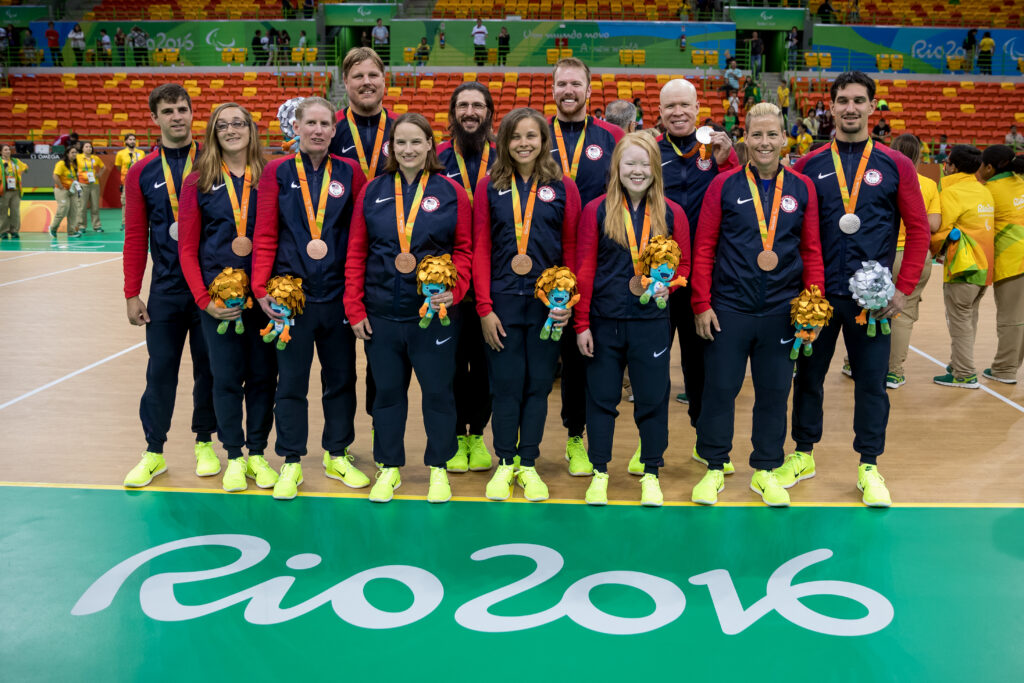
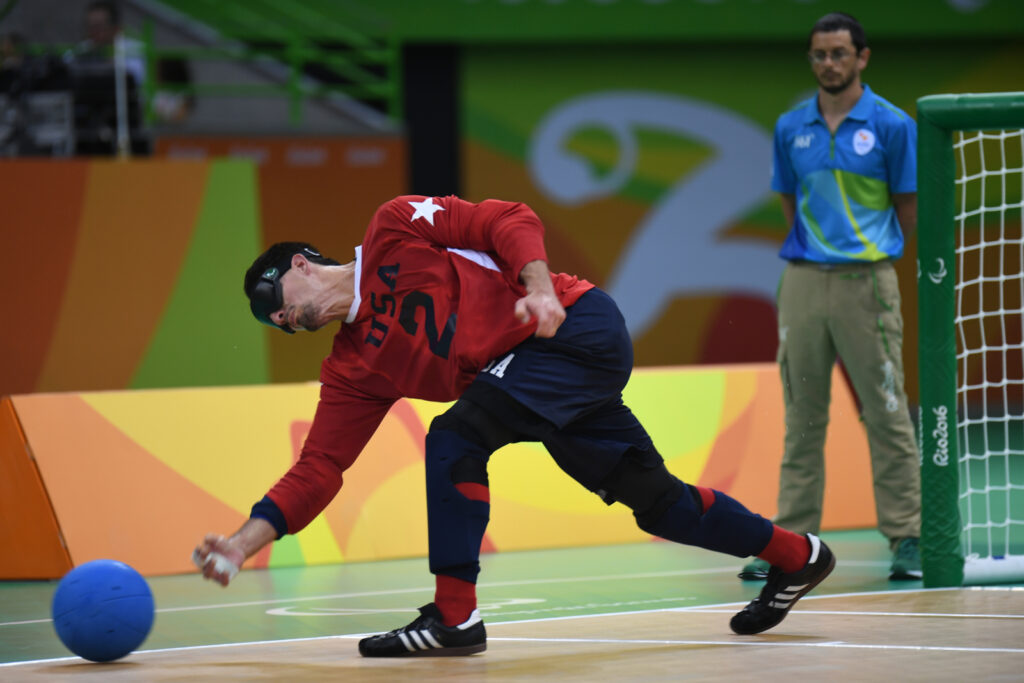
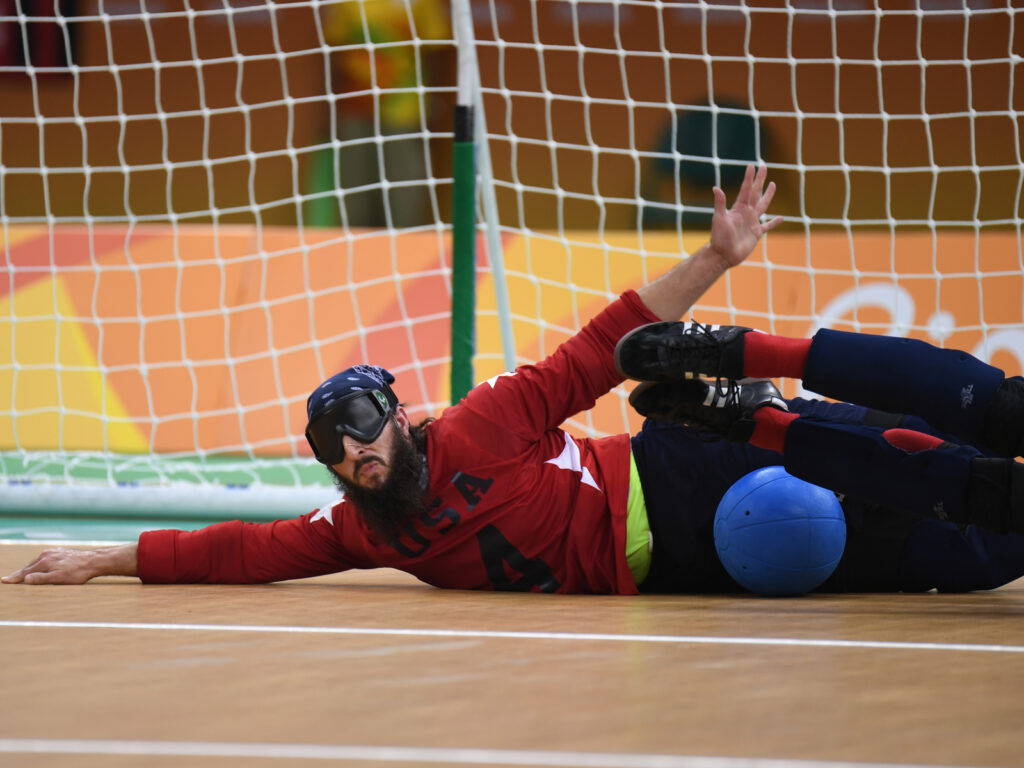
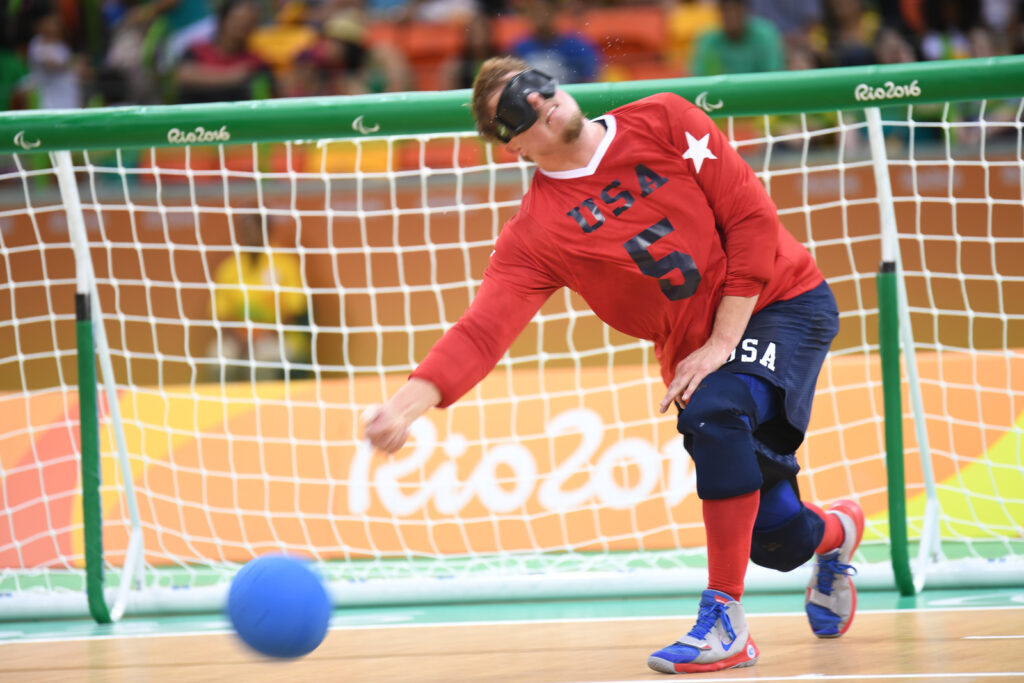
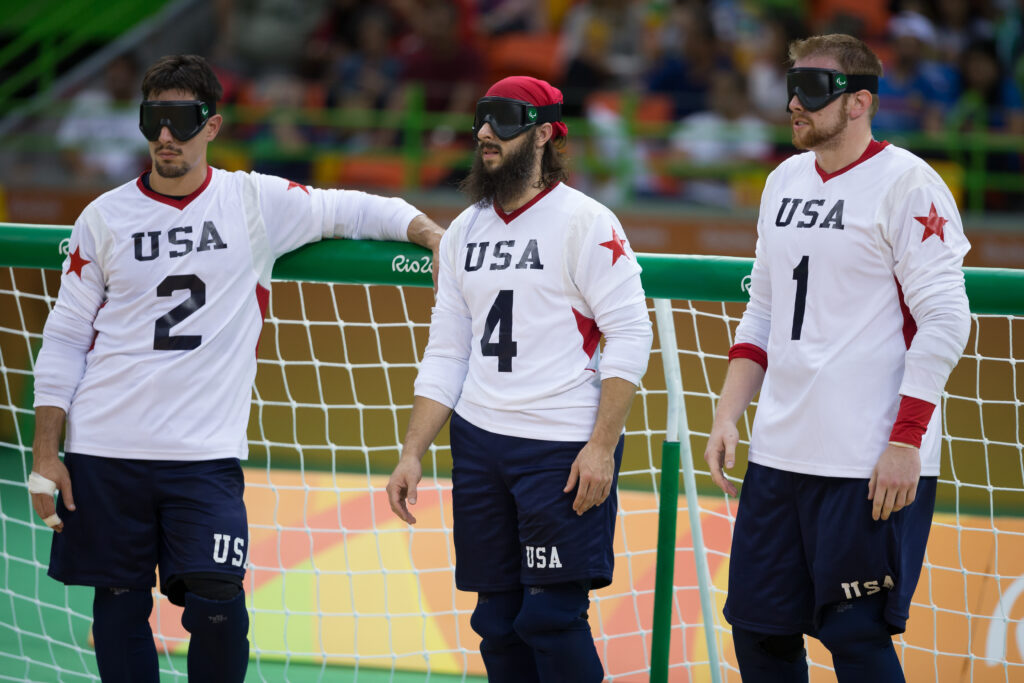
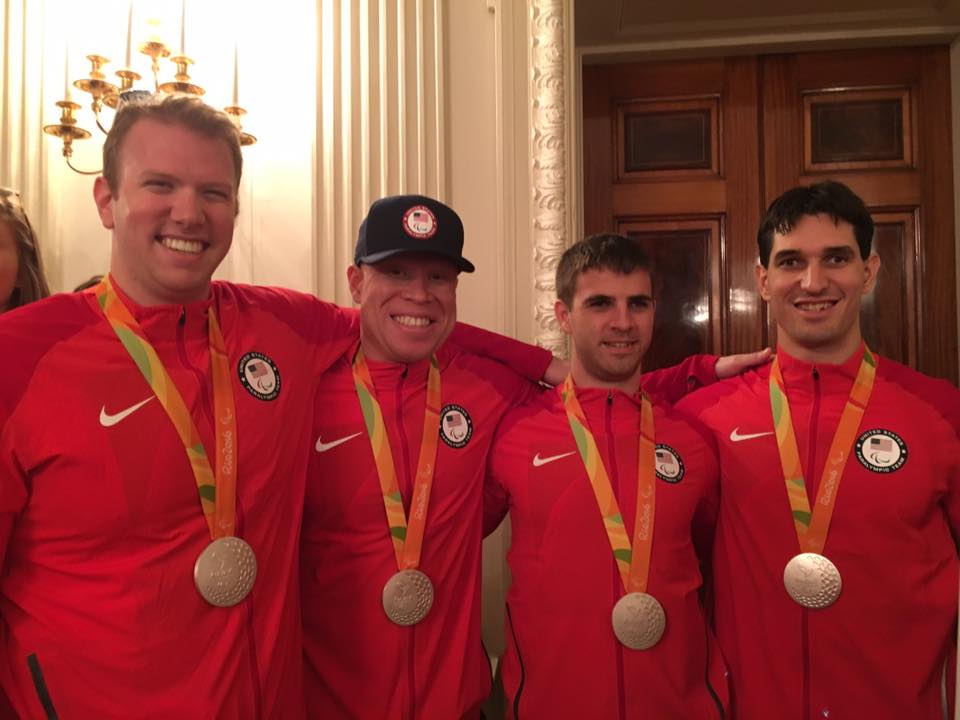

Related Posts
New Jersey Honeybees and Seattle King Cobras Triumph at 2024 USABA Goalball National ChampionshipsForce, Monarchs and Renegades win gold at Southeast Qualifier
A Look Back on the Road to Paris…2004 Athens Paralympic Games
A Look Back on the Road to Paris…1988 Seoul Paralympic Games
A Look Back on the Road to Paris…1984 New York Games
